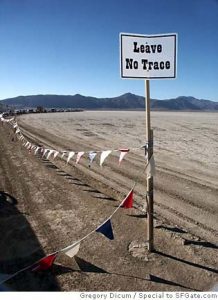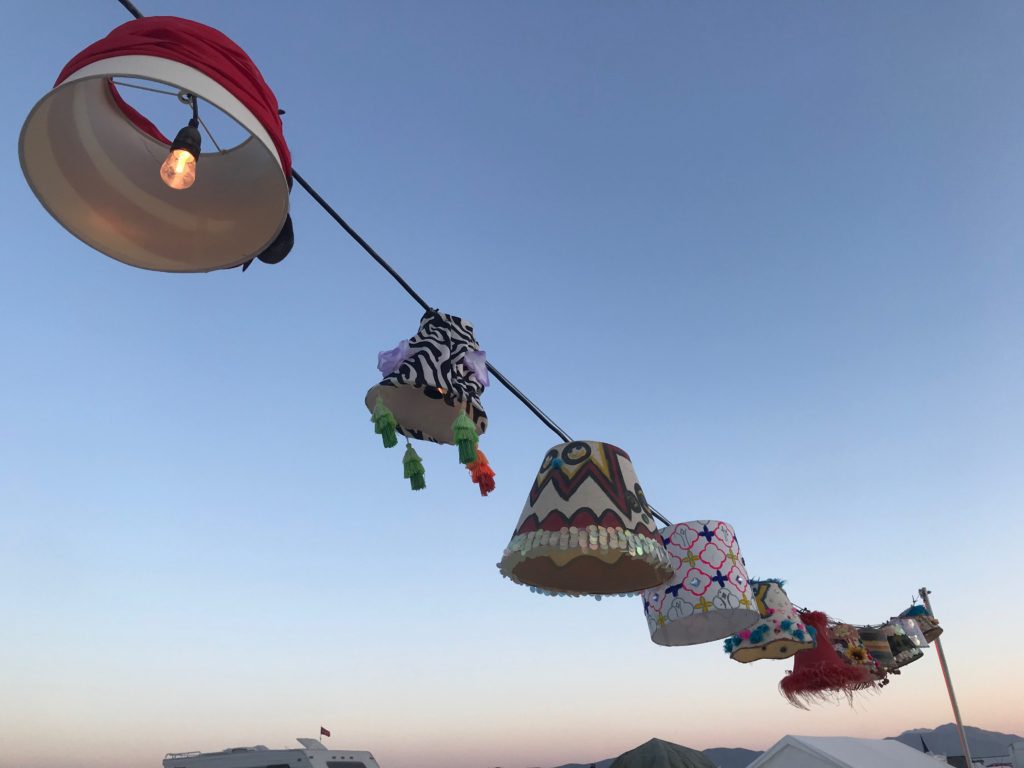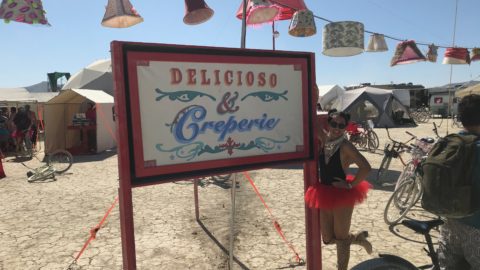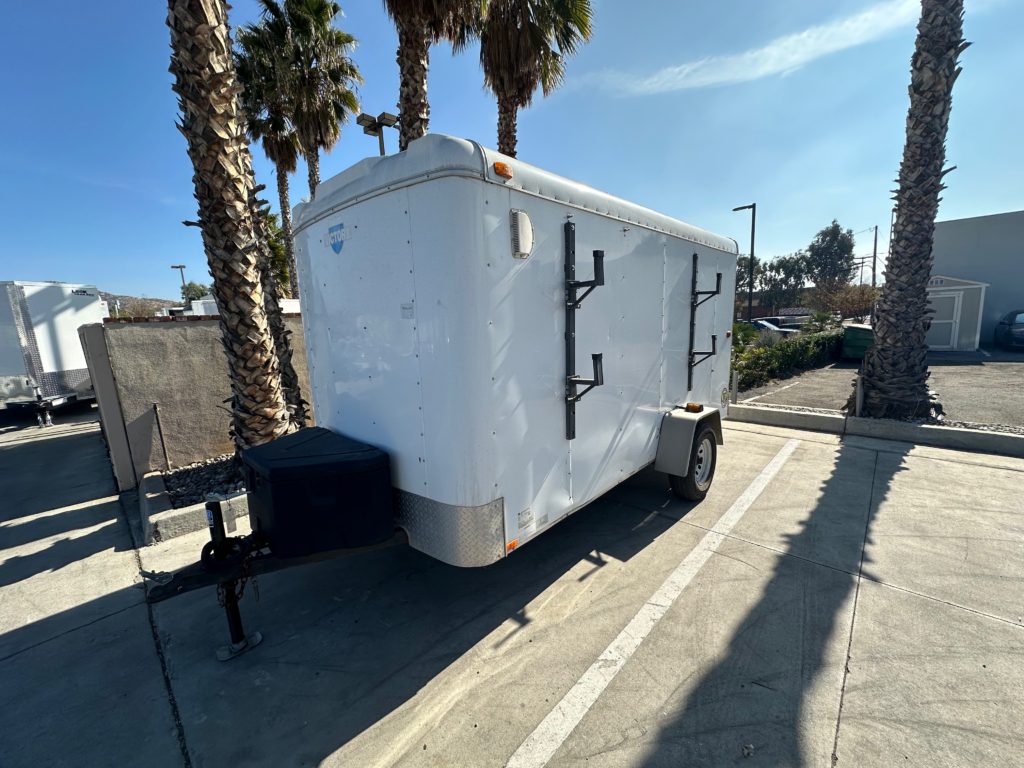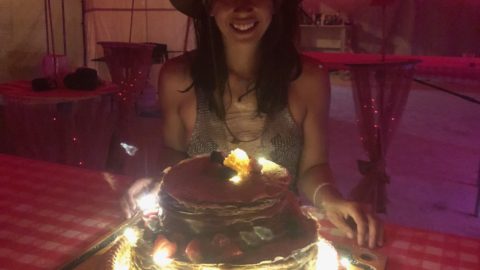Key Things to Remember
In the event that you find yourself in a situation involving law enforcement on the Playa, remember these key guidelines. Encounters with law enforcement are stressful, and it’s very easy to forget these guidelines when you are in the heat of the moment. By reading this guide, you’ll find yourself better prepared to help yourself and your friends.
- Avoid probable cause. Make sure your vehicle is fully in order (registration, lights, etc) and abide speed limits and other regulations. This limits the ability of law enforcement to stop you. Traffic stops are often followed up by a search by a k9 unit. The current US administration does not look kindly upon drugs-related offenses.
- Remain silent. Remember these magic words: “I am going to remain silent. I want to see a lawyer.“Anything you say can and will be used against you in a court of law. Assert your right to have an attorney present before you give an officer any information other than your name. The only questions you’re ever required to answer are questions regarding your identity or if you have weapons on your person.
- Remain calm. Always be calm and respectful when interacting with a police officer. If you believe your rights are being violated, clearly state that and then contest the officer’s actions in court.
- Never consent to a search. Never consent to a search and seizure of your (or another’s!) body, possessions, car, or dwelling. Say the phrase “I do not consent to a search.”
- If a police officer sees it, they can seize it. Be sure to conceal all of your private possessions. This includes taking precautions, such as closing your tent when you’re not in it.
- Being detained. The magic phrase is “Am I free to go?” A police officer is not allowed to keep you detained unless they have a reasonable suspicion that you have committed a crime.
- Contribute to the further success of Burning Man by being a good citizen of Black Rock City.
Be Courteous and Non-Confrontational
On your way to burning man, or whilst on the playa, police officers may stop you. Always be courteous and refer to the police as “Officer”.
Say: “Hello officer. Please can you tell me why I am being stopped?” They may say, “Why do you think I stopped you?” Tell the officer you don’t know. You always have the right to have a lawyer present before answering a police officer’s questions (beyond your name/identification).
Do not apologize after you get stopped – this could later be used against you in court.
If you are pulled over in a car, turn your car off, roll down the window, and keep your hands on the steering wheel. Allow officers to see your hands. Don’t reach into your glove compartment for your license and registration.
Your Identity
You may only be going by your burning man name, but law enforcement may still inquire about your identity.
If there is a reasonable, articulable suspicion of criminal involvement, you have to identify yourself with your real name, as displayed on your ID. Note that it may be useful to carry your ID on the playa, as camps will require it before serving you alcohol. If you are a non-US citizen visiting on a visa, you could consider carrying your passport. A copy may be safer, but not all camps will accept it as a proof of age when serving alcohol.
Driving to Black Rock City – getting pulled over
Almost everyone (with the exception of a lucky few) will be headed out to Black Rock City via vehicle. Here is a quick overview of your rights if you are driving a vehicle and happen to get pulled over:
- Police need probable cause to pull you over. Unfortunately probable cause can be anything from suspicion that you committed a crime to speeding to a broken tail light. Make sure that your vehicle registration is in order.
- You must provide ID. If you are operating a motor vehicle you must provide identification when asked.
- You don’t have to pull over until you can safely do so. You don’t need to put yourself in a dangerous situation to pull over, but it is incredibly wise to put on your hazard lights so that the officer knows you have acknowledged their presence and intend to pull over.
- You have the right to stay in the car. You do not have to exit your vehicle, however note that it might look “suspicious” for you to not exit upon being asked.
- You can refuse a breathalyzer. Technically, all drivers can refuse to take a breathalyzer until the police have a search warrant requiring you to submit to the test. It is worth noting that even if you can legally refuse, most drivers agree to having their driver’s license revoked for six months if you do so.
- You are required to stop at checkpoints.
- Police can only search your car without a warrant for these 5 reasons:
- If you consent.
- If you have anything illegal in “plain view.” This means that if you have a weapon or illicit substance out on the seat and the officer sees it, they are allowed to search your car.
- If you are being arrested, the officer can search your car under the “search incident to arrest” doctrine.
- If the officer has “probable cause to suspect a crime has been committed.” It’s not technically illegal to have blood stains on your windshield or to smell of marijuana, but all of those things could give the officer enough to search your car.
- If there are “exigent circumstances” – meaning there’s an emergency.
- Police can always search your car if they have a warrant.
If you get pulled over, remember to remain calm. If the officer writes you a ticket, you should accept it and then contest the ticket later in traffic court if you believe it was not warranted.
If you are a passenger and the vehicle you are in is stopped by the police, you as a passenger do not have an obligation to answer any questions, nor do you have an obligation to identify yourself, exit the vehicle or submit to a search.
If you are in a vehicle off the side of the road and sleeping, a police officer may conduct a “Welfare Check”, and ask if the Passenger is OK or in need of any medical attention.
Law Enforcement at Burning Man – arrests increase further in 2017
In 2015, the number of people arrested at Burning Man skyrocketed 600% above the 2014 levels. Since then, we’ve seen a further increase in arrests on the Playa with a peak in 2017. It is worth noting that these numbers are pretty much in line with what to expect at an event the size of Burning Man.
The law enforcement picture of Burning Man is a complex one, with officers from various agencies, including the Bureau of Land Management, Pershing County and Wahoe County involved in operations. Statistics are scattered across a variety of sources.
| Year | Participants | BLM officers | PCSO officers | Washoe | # of Drug Citations | Total # Citations | # Arrests |
| 2017 | 69,493 | 53 | 121 | 500+ | 57 | ||
| 2016 | 67,290 | 81 | 30 | 112 | 46 | ||
| 2015 | 67,564 | 80 | 31 | 8 | 600 | 41 | |
| 2014 | 65,922 | 70 | 27 | 8 | 257 | 392 | 7 |
| 2013 | 69,613 | 70 | 32 | 309 | 433 | 6 | |
| 2012 | 52,385 | 70 | 253 | 365 | 14 | ||
| 2011 | 53,735 | 51 | 218 | 376 | 8 | ||
| 2010 | 51,515 | 51 | 158 | 293 | 9 | ||
| 2009 | 43,435 | 287 | 9 | ||||
| 2006 | 38,989 | 177 | 25 | ||||
| 2003 | 30,586 | 135 | 10 | ||||
| 2001 | 25,659 | 100 | 5 |
The information in the table above is compiled based on information collected by Burners.me, the Burning Man Census report as well as a number of other public sources, mainly newspaper articles. The fees for citations ranged from $100 to > $500, depending on what the actual infraction was.
Say No to Search Requests
Never consent to a search of your person, car, RV, camp or tent. Simply say: “Officer, I do not consent to a search.” Say no more, no less. You are under no obligation to consent to a search. Keep any private items that you don’t want others to see out of sight. Police do not need a search warrant in order to confiscate any illegal items that are in plain view. The only reason an officer asks your permission is because he doesn’t have enough evidence to search without your consent. If you consent to a search request you give up one of the most important constitutional rights you have: your Fourth Amendment protection against unreasonable searches and seizures.
Make sure EVERYONE in your camp knows these rules as well. Law enforcement can ask the other people in your car or camp for permission to search. Never consent to the search of anyone else’s property. You should all sing the same song: “I do not consent to a search.” Even if they threaten you with arrest, or threaten you with bringing a sniffing dog, continue to say “I do not consent to a search”. Even while they are searching you or your stuff, you guessed it, “I do not consent to a search”.
Being Frisked
When an officer has lawfully stopped you, they may proceed to pat down your outer clothing for the purposes of detecting concealed weapons that may pose a safety risk to the officer. This is called the “stop and frisk” exception to the warrant requirement. During the patdown, a police officer is allowed to seize any other evidence, such as a concealed drug container, that can be felt through your clothing.
If you find yourself in a “stop and frisk” situation there are a few things you can do.
- Remain calm. Please try to remember that yelling at a police officer or posing any sort of additional threat to the officer will not help your case.
- Keep asserting your rights. It’s always okay to continually keep stating that you did not consent to a search of your person. This can dramatically increase your chances of the evidence being thrown out in court.
Protect your belongings
Always keep your burning man home closed when you are not there. If possible, use a lock. You may want to use a cover to block transparent windows, so that curious bypassers cannot look inside. If you close your resting place, law enforcement needs a warrant to open it or your consent. If law enforcement presents a warrant, comply, and seek help from a lawyer. If no warrant is presented, say “I do not consent to a search.” Anyone that has routine access to your dwelling can give consent for a search, so make sure to share this guide with them!
Being Detained
If you’re being detained, questioned or otherwise restricted in your movements, ask the law enforcement agent whether you are free to go. Calmly keep asking “Am I free to go?” until you get to yes. As soon as you are told that you are free to go, walk away. If you are told that you are not free to go, ask whether you are being arrested. Unless they say yes, ask whether you’re free to go. Repeat as necessary.
Being Arrested
If you are being arrested (a good way to know is being told: “You are under arrest.”), or you think you have been arrested, immediately say the following: “Officer, I’d like to remain silent and I’d like to speak with a lawyer.” Then, contact a lawyer. (I am not a licensed attorney, not your attorney, and this post is in no way monetized).
Do not physically resist a search or an arrest. You may state clearly but non-confrontationally: “Officer, I am not resisting arrest and I do not consent to any searches.”
Do not volunteer any other information. You have nothing to gain. You may be told that cooperation will make things easier for you, and many people hope to be let off easy if they are honest and direct with the police. Do not let the threat of arrest scare you into admitting guilt. Don’t say anything to anyone but your lawyer. Now that you’ve invoked it, use your right to remain silent.
Beware of stings
There will be undercover police officers in Black Rock City, so obey the law. If you are running a bar, verify the ID of any individuals that you are serving. Even if you don’t have a bar, don’t give alcohol to anyone without asking for an ID to verify their age. If anyone asks you about drugs, remember: you don’t know about drugs, you don’t have drugs, you don’t use drugs and you certainly never supply drugs. Only at burning man might you end up being arrested by an LED-clad hula hooping undercover agent with angel wings. Don’t let it happen to you.
Drugs at Burning Man
http://www.lawyersforburners.com/ notes:
Take great care while entering the Event and while driving to your camp on Gate Road, the outer ring of the Event. In recent years, the BLM has shifted its drug enforcement efforts from patrolling inside the Event to stopping vehicles as they enter the Event. The BLM has used motor vehicle stops as a pretext to search vehicles for drugs. Once your vehicle is stopped, the BLM typically has a drug dog nearby to “sniff” your vehicle and “alert” to the presence of drugs.
The Black Rock Desert National Recreation Area is public land regulated by the federal government via the Bureau of Land Management (BLM). The BLM headquarters in Washington, D.C. oversees the agency’s law enforcement in the Black Rock Desert.The Pershing County Sheriff and BLM are on site to enforce all applicable federal, state and local laws. This is important, because under the new US administration, tolerance for drug offenses has lowered significantly. On Aug 3 2017, the NYT noted:
“Brett Tolman, a former United States attorney in Utah during the administration of George W. Bush, said Mr. Sessions’s policies on criminal charging and sentencing had already drastically affected some of his clients in federal cases not just limited to drugs. In conversations with assistant United States attorneys around the country, Mr. Tolman said, the prosecutors cited Mr. Sessions’s directives in refusing to negotiate in situations they previously would have.”
Flying your drone
So you want to fly your drone at burning man? Great idea, but you should know that Burning Man maintains a policy and requires registration for Remote Control Aircraft in and around Black Rock City. The FAA requires that all operators of remote control aircraft flying within 5 miles of an airport notify that airport. Because almost all of Black Rock City is within 5 miles of Black Rock City Municipal Airport, registration is a requirement. Some key rules of operation include:
- Maximum altitude of 400 feet above ground.
- No First Person View flying (no flying based upon video stream, rather than direct sight).
- Flying over crowds is prohibited. Maintain at least 25 ft. horizontal separation from people.
- No operating RC aircraft while intoxicated.


